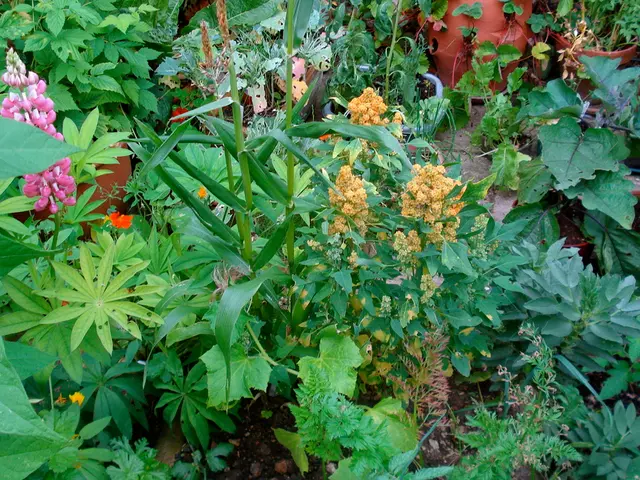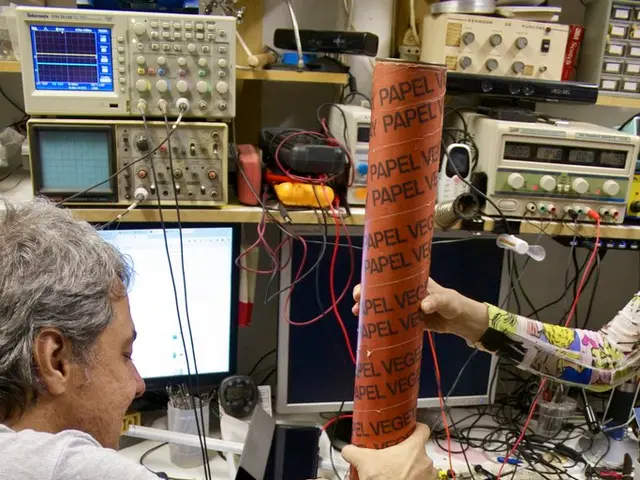Investing in air conditioning costs is a question worth considering in light of the UK's increasing heatwave trends.
In the face of increasing temperatures and regular mini heatwaves, air conditioning is becoming a more popular solution for homes across the UK. This article aims to provide a clear overview of the costs associated with portable and multi-split air conditioning units.
**Installation and Purchase Costs**
For those seeking a cost-effective option, portable air conditioners are a viable choice. These self-standing units, around the size of a laundry basket, can be easily moved and do not require professional installation, saving on installation costs. Prices for portable air conditioners typically range from £150 to £350, depending on the model and features such as cooling capacity and efficiency.
**Running Costs**
A typical 9,000 BTU portable air conditioner uses between 780 and 1,000 watts per hour. Based on the Summer 2025 price cap of 25.73p per kWh, running it for 4 hours a day over a 60-day summer period would cost approximately £48 to £62 per year. To reduce costs, pre-cooling rooms before peak heat, using timers and sleep modes, sealing windows and doors, and choosing energy-efficient models are all recommended.
Multi-split air conditioning units, with one outdoor fan unit and up to around 10 indoor units, have a higher running cost. Based on a system running for six hours per day, seven days a week, the annual running cost for heating and cooling a house with five habitable areas is around £900. Reducing the running hours to 4 hours can lower this cost to around £600 a year.
**Maintenance**
Regular maintenance is crucial to ensure the air conditioning system is running efficiently. Portable air conditioners require regular cleaning or replacement of filters every 2-4 weeks to maintain airflow efficiency. Models with self-evaporating features reduce the need for tank draining, but storing them properly over winter is recommended to prevent mold and damage.
For multi-split systems, the costs vary according to which indoor units are chosen. Regularly cleaning vents and filters can help reduce air conditioning costs by improving airflow and reducing power usage.
**Finance Options**
For those seeking flexible finance options, BOXT offers plans starting at £30.67 a month with no deposit. The cost of installing a fitted air conditioning unit in one room starts from £2,199, including professional installation.
Pairing air conditioning with solar power can make it a more cost-effective solution, using clean, renewable energy to reduce running costs. Air conditioning is increasingly being seen as a smart long-term investment.
[1] https://www.boxt.co.uk/blog/portable-air-conditioner-buying-guide/ [2] https://www.boxt.co.uk/blog/air-conditioning-costs/ [3] https://www.daikin.co.uk/en_gb/business/tools/calculator/ [4] https://www.which.co.uk/reviews/air-conditioners/article/buying-the-best-portable-air-conditioner [5] https://www.moneysavingexpert.com/utilities/air-conditioning-costs/
- A well-designed roof insulation is essential to keep a home energy-efficient, and it can significantly reduce the need for air conditioning during hot weather.
- In addition to air conditioning units, the design of a home's doors and windows also plays a crucial role in maintaining a comfortable lifestyle, as they affect the home's ability to retain cool air.
- Technology has paved the way for advanced home-and-garden tools that can aid in the installation and maintenance of air conditioning systems, such as online calculators that provide a realistic estimation of running costs.
- Personal-finance websites can provide valuable guidance on the costs associated with various air conditioning units, helping individuals make informed decisions about their purchases based on their specific needs and budget.
- When building a new home or renovating an existing one, incorporating the latest energy-efficient standards and regulations is critical in reducing the overall energy consumption of the house, including air conditioning.
- With the increasing popularity of air conditioning, modern kitchen appliances are being designed to work seamlessly alongside these systems, offering a compatible and integrated lifestyle solution.
- The efficiency of an air conditioning unit is not only determined by its Energy Efficiency Rating but also by factors such as the local weather, which can significantly impact the effectiveness of the system in controlling temperature.
- Implementing even simple measures, such as sealing doors and windows to prevent drafts, can help lower the running costs of air conditioning units, as well as contribute to a more sustainable lifestyle.
- As the costs associated with energy continue to rise, understanding the total costs of owning an air conditioning unit, including both purchase and running expenses, is crucial for effective budget planning and long-term financial management.
- Investing in a weak or underpowered air conditioning unit can lead to increased energy consumption and higher running costs, making it essential to consult comprehensive buying guides when selecting the right system for your home.
- When using air conditioning, it's important to prioritize a comfortable and healthy indoor environment, which can be achieved through proper installation, regular maintenance, and the use of energy-efficient models that provide good air circulation and effective heating capabilities.




